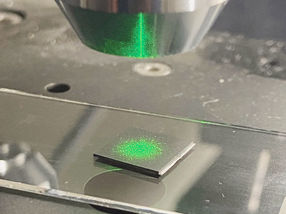Project ORCHID identifies new compounds for fight against TB
Project ORCHID has kick-started the fight against the rampant spread of multi-drug-resistant TB – responsible for more than one million deaths per year – through the development of a set of methods and tools that has helped to drastically reduce the time it takes to identify potential new medicines. The research is already yielding results, with clinical trials of one potential candidate compound beginning shortly.
Current treatment for drug susceptible TB requires a combination of three or four drugs for six months that causes significant side effects. Moreover, the effectiveness of first-line TB chemotherapy has been compromised by the emergence of drug-resistant TB.
To address this issue, the ORCHID (Open Collaborative Model for Tuberculosis Lead Optimisation) alliance led by Dr David Barros of GSK has embarked on a four-year project to develop new medicines against drug-resistant TB and bring them to the marketplace in a fast and efficient way.
“When ORCHID started, the last anti-tubercular drug (Rifampin) to be approved was back in the sixties,” says Dr Barros. “Efforts to discover new drugs for TB have been very fragmented and academic institutions have been conducting independent research with little or no links to the pharmaceutical industry.”
This structure has, unsurprisingly, been inadequate in delivering novel anti-tubercular drugs. ORCHID is looking to streamline the R&D process with the development of a set of new tools that could cut the typical time it takes for a medicine to reach trial stage from 10 years to just 48 months.
By concentrating on both new drugs and compounds already in the clinic, ORCHID has optimised its chances of delivering candidate compounds for clinical trials within this short time frame. The consortium is thus working on several chemical series at different stages of the drug discovery cascade. Their work has involved: identifying new chemical hits from a screen of the GSK compound collection, optimising compounds that have the potential to replace Isoniazid as InhA inhibitors, and repurposing antibiotic compounds that were previously thought to be ineffective as treatment for TB.
After only two and a half years of research, the team has identified an orally administered β-lactam as a potential candidate to combat TB. The most promising β-lactam will shortly begin clinical trials. Additionally, two new direct inhibitors of InhA have been identified, offering potential replacements for two of the main drugs used in general TB treatment.
The consortium has also made a valuable scientific contribution by developing novel tools for further TB drug discovery and development. The École Polytechnique Fédérale de Lausanne (EPFL) has devised a tool that enables single cell time-lapse microscopy. This technique has become a critical resource for understanding how individual bacteria grow, multiply and die when exposed to drugs.
ORCHID’s members hope to make a significant contribution to Europe’s Horizon 2020 aspirations and are currently negotiating an extension of the project. “We hope that the imminent clinical trials will ultimately function as a proof of concept,” says Dr Barros. “If successful, they could fundamentally change the existing paradigm that β-lactams are ineffective against TB. Eventually, we hope that our success can inspire others within the research community to join forces to develop innovative new drugs in the fight against TB.”
Most read news
Other news from the department research and development

Get the life science industry in your inbox
By submitting this form you agree that LUMITOS AG will send you the newsletter(s) selected above by email. Your data will not be passed on to third parties. Your data will be stored and processed in accordance with our data protection regulations. LUMITOS may contact you by email for the purpose of advertising or market and opinion surveys. You can revoke your consent at any time without giving reasons to LUMITOS AG, Ernst-Augustin-Str. 2, 12489 Berlin, Germany or by e-mail at revoke@lumitos.com with effect for the future. In addition, each email contains a link to unsubscribe from the corresponding newsletter.
























































